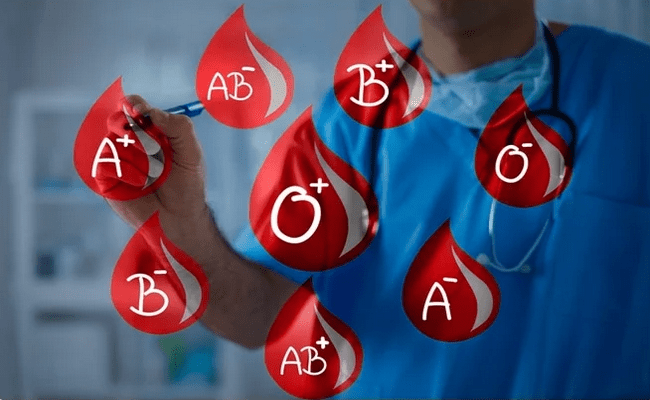What is Blood Group?
Based on the presence or absence of various antigens, blood is categorized into different groups known as blood groups. Before transfusion of blood to a person, it is necessary to determine the blood type of the recipients’ blood and the blood type of the donor so that the blood can be appropriately matched. These are known as blood groups.

Different Types of Blood Group:
Classical or principal blood groups are listed below:
ABO Blood Groups:
It includes-
- A,
- B,
- AB,
- O.
Rh Blood Groups:
It includes-
- Rh +ve,
- Rh –ve.
Basis of Blood Groups:
Blood groups are determined by the presence or absence of genetically determined antigens or agglutinogens on the surface of RBCs.
A, B, and Rh are the most clinically significant blood antigens present in the RBC membrane.
- Type A blood has A antigen on the surface of RBCs.
- Type B blood has B antigen.
- Type AB blood has both A and b antigens.
- Type o blood has neither A nor B antigens.
- Blood with Rh antigen is Rh (+) positive.
- Blood without Rh antigen is RH (-) negative.
ABO System of Blood Grouping: Antigens, Antibodies, and Compatibility:
Blood Group | Antigen+ antibody (ies) present | As a donor, is | As the recipient, is |
A | Antigen A makes Antigen B | Compatible with: A and AB Incompatible with: B and O, because both make antigen-A antibodies that will react with A antigens. | Compatible with: A and O Incompatible with: B and AB, because type A makes antigen-B antibodies that will react with B antigens. |
B | Antigen B makes Antigen A | Compatible with: B and AB Incompatible with: A and O, because both make antigen B antibodies that will react with B antigens. | Compatible with: B and O Incompatible with: A and AB, because type b makes antigen-A- A antibodies that will react with A antigens. |
AB | Antigen A and B makes neither Antigen A nor Antigen B | Compatible with: AB only Incompatible with: A, B, and O, because all three make antibodies that will react with AB antigens. | Compatible with all groups “Universal Recipient” AB makes no antibodies and therefore will not react with any type of donated blood. |
O | Neither A nor B antigen makes both Antigen A and Antigen B | Compatible with all groups “Universal Donor”, O red cells have no antigens and will therefore not stimulate antigen A or antigen B antibodies. | Compatible with: O only Incompatible with: A, AB, and b, because type O makes antigen A and antigen B antibodies. |
Importance of Blood Group:
All the key importance of knowing blood group are-
- To know the blood group of individuals,
- Blood transfusion and tissue transplants,
- Certain blood disease,
- Paternity test and other medico-legal cases.

Maria Khatun Mona is a Founder and Editor of Nursing Exercise Blog. She is a Nursing and Midwifery Expert. Currently she is working as a Registered Nurse at Evercare Hospital, Dhaka, Bangladesh. She has great passion in writing different articles on Nursing and Midwifery. Mail her at “maria.mona023@gmail.com”
